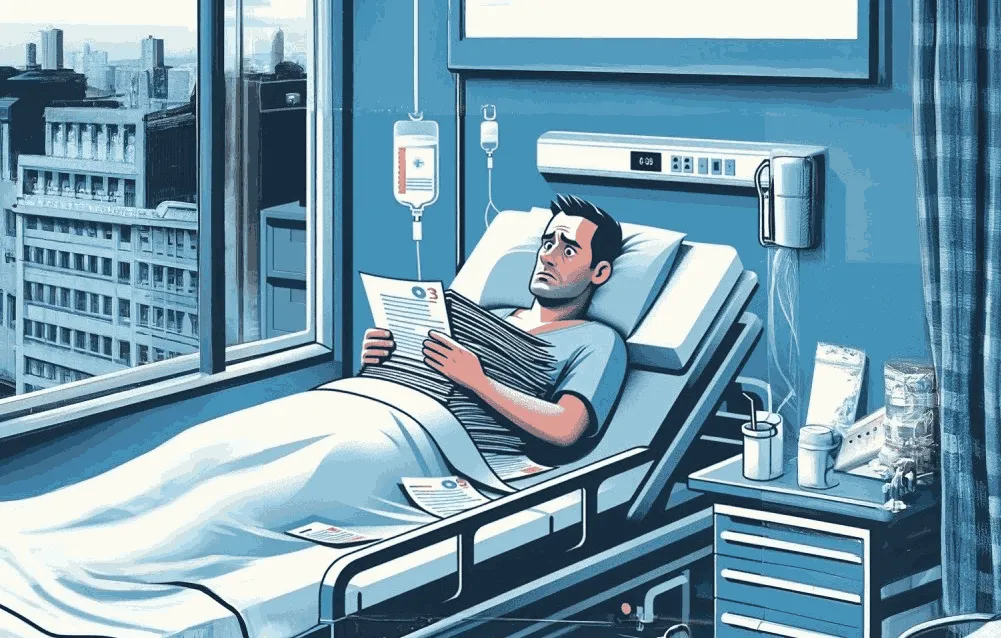What is Critical Illness Insurance?
Critical illness insurance offers a lump-sum payment upon the diagnosis of a covered serious illness. This financial support can help cover medical expenses, living costs, and other financial obligations during a challenging time.
How Does Critical Illness Insurance Work?
Upon diagnosis of a covered illness, the policyholder receives a lump-sum payment. This payout can be used at the policyholder's discretion, providing flexibility in managing medical and non-medical expenses.
Benefits of Critical Illness Insurance
Critical illness insurance offers a range of significant benefits that can provide essential support during challenging times. Below are some of the benefits of critical illness insurance:
1. Financial Security During Health Crises
One of the primary benefits of critical illness insurance is the financial security it provides. The lump-sum payment can help cover costs that health insurance might not, such as out-of-pocket medical expenses, mortgage payments, and everyday living costs.
2. Flexibility in Spending
Unlike health insurance, which directly pays medical providers, critical illness insurance gives you the flexibility to use the payout for any purpose. This can include experimental treatments, travel expenses for specialized care, or even family support during recovery.
3. Peace of Mind
Knowing that you have a financial safety net in place can reduce stress and allow you to focus on recovery. This peace of mind is invaluable during a health crisis.
Costs of Critical Illness Insurance
The cost of premiums varies based on factors such as age, health status, and coverage amount. It's essential to compare different policies and providers to find the best fit for your needs and budget.
Coverage Limitations
Not all illnesses are covered under every policy. It's crucial to understand what conditions are included and any exclusions or limitations that may apply.
Policy Terms and Conditions
Policies differ in terms of waiting periods, survival periods, and other conditions. Carefully review the terms to ensure you understand when and how benefits are paid.
Comparing Critical Illness Insurance to Other Types of Insurance
When evaluating critical illness insurance, it's essential to understand how it compares to other forms of insurance, such as health insurance and disability insurance.
Health Insurance vs. Critical Illness Insurance
Health insurance covers medical treatments and hospital bills, while critical illness insurance provides a lump-sum payment that can be used for any purpose. Both types of insurance can complement each other, offering comprehensive financial protection.
Disability Insurance vs. Critical Illness Insurance
Disability insurance provides income replacement if you're unable to work due to a disability, while critical illness insurance provides a lump-sum payment upon diagnosis of a serious illness. Having both types of coverage can offer broader protection.
Who Should Consider Critical Illness Insurance?
Determining whether critical illness insurance is right for you involves considering various personal factors. This type of insurance can be a crucial financial safeguard for specific groups of people, ensuring they are prepared for the unexpected costs associated with serious health conditions. Below, we outline who might benefit most from having critical illness insurance and why it could be an essential component of their financial planning.
1. Individuals with Family History of Serious Illnesses
If you have a family history of conditions like cancer, heart disease, or stroke, critical illness insurance can be a wise investment to prepare for potential future health challenges.
2. Primary Breadwinners
For primary breadwinners, losing income due to a serious illness can be financially devastating for the family. Critical illness insurance can help mitigate this risk.
3. Those Without Adequate Savings
If you don't have substantial savings to cover the high costs of a serious illness, critical illness insurance can provide the financial support needed during recovery.
Common Critical Illnesses Covered
Critical illness insurance typically covers a range of severe health conditions that can lead to significant financial strain. These commonly include cancer, heart attack, and stroke.
Each of these illnesses often involves extensive treatment, rehabilitation, and recovery costs, which can be partially or fully mitigated by the lump-sum payment provided by the insurance. Understanding which illnesses are covered by your policy is crucial to ensuring you have adequate protection against some of the most financially impactful health crises.
1. Cancer
Many cancer insurance policies cover various types of cancer and across all stages, providing financial support for treatments and recovery.
2. Heart Attack
Experiencing a heart attack can incur substantial medical expenses and necessitate time off work, which can be a burden to your finances. However, a heart attack insurance policy can provide valuable assistance in covering these costs.
3. Stroke
Stroke recovery frequently demands extensive rehabilitation and therapy, both of which can incur significant costs. Having stroke insurance coverage can alleviate the financial burden by providing the necessary funds.
Conclusion
Evaluating the worth of critical illness insurance involves assessing your health risks, financial preparedness, and the specifics of different policies. Consider your personal and family medical history to gauge the likelihood of developing a serious illness. Review your current financial situation, including savings and existing insurance coverages, to determine if additional protection is necessary. Lastly, compare policies from various providers, focusing on coverage, premiums, exclusions, and terms, to find the best fit for your needs.
Secure your financial future today and ensure you're protected against unexpected health crises with Oona’s critical illness insurance.



















